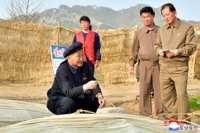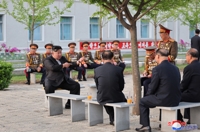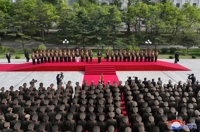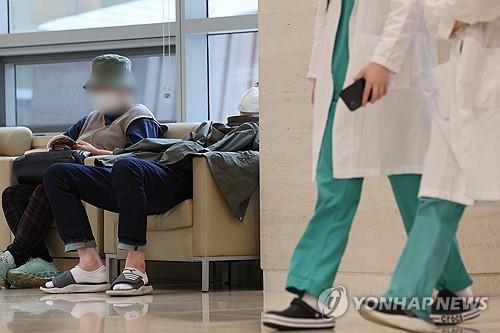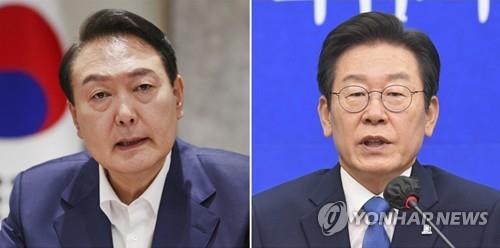(EDITORIAL from Korea Times on Sept. 6)
Curb prices before Chuseok
Bolder steps needed to tame runaway inflation
Inflationary pressure abated to a certain degree in August for the first time in seven months. According to data from the Statistics Korea on Friday, consumer prices rose by 5.7 percent year-on-year last month, after reaching a 24-year high of 6.3 percent in July. This is raising expectations that inflation already reached its peak.
The statistics agency foresaw prices will be stabilized should international oil and food prices -- the main driver of inflation -- continue their downward trend. Yet it is still premature to let our guards down, given the current turnaround was chiefly due to a temporary drop in oil prices, despite high volatility amid the protracted Russian war in Ukraine.
The prices of petrochemical products rose 19.7 percent in August, after soaring 35.1 percent in July. However, the rapid depreciation of the Korean won against the U.S. dollar will likely intensify inflationary pressure, prompting the Bank of Korea to raise its key interest rate. Energy prices will likely go up again ahead of winter as demand for natural gas is expected to increase in European countries.
More worrisome is a surge in commodity prices ahead of Chuseok, the four-day fall harvest holiday beginning Friday. The prices of farm products have continued to skyrocket, affected by record rainfalls in August and poor harvests. The farm products prices rose 10.4 percent in August, up from 8.5 percent in July, amid drastic rises in prices of vegetables (27.9 percent) and fruit (9.4 percent) such as pumpkin (83.2 percent), cabbage (78 percent) and cucumber (69.2 percent) on a month-on-month basis.
The government has unveiled a package of measures to stabilize consumer prices before Chuseok, releasing 230,000 tons of staple goods and 65 billion won (US$47.4 million) worth of discount vouchers. It has decided to pay out a flood disaster relief fund earlier than planned while providing free tollgate services during Chuseok season.
More realistic steps are needed to lessen the people's burden. If necessary, the government should consider releasing more state-hoarded products to curb prices. The approaching Typhoon Hinnamnor will likely accelerate the spiraling prices as it is likely to decrease the harvest of farm products. Efforts are needed to minimize the impact of the typhoon. Yet, more urgent is to tackle the fallout from the weakening won. The local currency closed at 1,371.4 won per U.S. dollar Monday, the lowest level since April 1, 2009.
The depreciation of the won has widened the trade deficit and heightened worries about a capital outflow. On Monday, Finance Minister Cho Kyung-ho vowed to take preemptive action to stabilize the financial market from any negative external factors during a meeting of top economic and finance officials. As Choo put it, all possible measures should be considered including a won-dollar swap deal with the United States. And the U.S. should proactively consider such a deal as part of efforts to strengthen the alliance and partnership between the two countries.
(END)
-
 'Queen of Tears' weaves rich tapestry of Korean contemporary art
'Queen of Tears' weaves rich tapestry of Korean contemporary art -
 Ateez member Yunho throws first pitch at MLB match between Dodgers, Mets
Ateez member Yunho throws first pitch at MLB match between Dodgers, Mets -
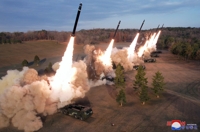 N. Korea says Kim guided simulated nuclear counterattack drills for 1st time
N. Korea says Kim guided simulated nuclear counterattack drills for 1st time -
 N. Korea calls envisioned U.S. aid to Ukraine 'hallucinogen'
N. Korea calls envisioned U.S. aid to Ukraine 'hallucinogen' -
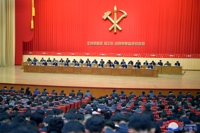 N. Korea calls on party propaganda officials to work harder
N. Korea calls on party propaganda officials to work harder
-
 'Queen of Tears' weaves rich tapestry of Korean contemporary art
'Queen of Tears' weaves rich tapestry of Korean contemporary art -
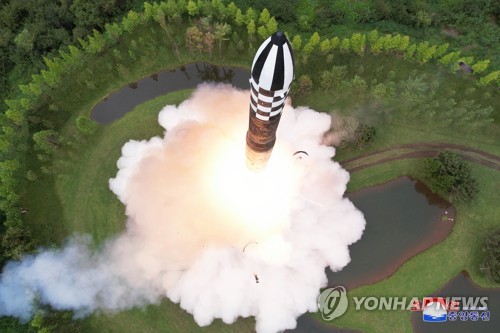 Experts see possibility of N.K. conducting nuclear test before U.S. presidential vote
Experts see possibility of N.K. conducting nuclear test before U.S. presidential vote -
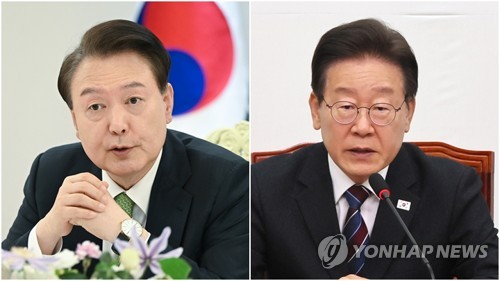 Details of meeting between Yoon, opposition leader undecided: presidential office
Details of meeting between Yoon, opposition leader undecided: presidential office -
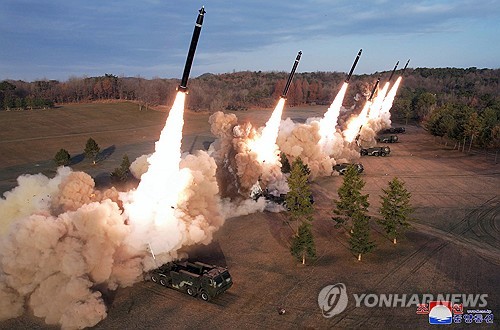 N. Korea says Kim guided simulated nuclear counterattack drills for 1st time
N. Korea says Kim guided simulated nuclear counterattack drills for 1st time -
 Looming weekly closure of major hospitals feared to worsen medical service crisis
Looming weekly closure of major hospitals feared to worsen medical service crisis
-
 S. Korea eliminated in Olympic football qualifiers as poor defense, undisciplined play prove costly
S. Korea eliminated in Olympic football qualifiers as poor defense, undisciplined play prove costly -
 10-man S. Korea lose to Indonesia to miss out on Paris Olympic football qualification
10-man S. Korea lose to Indonesia to miss out on Paris Olympic football qualification -
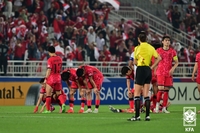 (LEAD) 10-man S. Korea lose to Indonesia to miss out on Paris Olympic football qualification
(LEAD) 10-man S. Korea lose to Indonesia to miss out on Paris Olympic football qualification -
 Indonesia coach left with mixed feelings after eliminating native S. Korea in Olympic football qualifiers
Indonesia coach left with mixed feelings after eliminating native S. Korea in Olympic football qualifiers -
 (3rd LD) Hybe to file complaint against sublabel executives over internal conflict
(3rd LD) Hybe to file complaint against sublabel executives over internal conflict
















